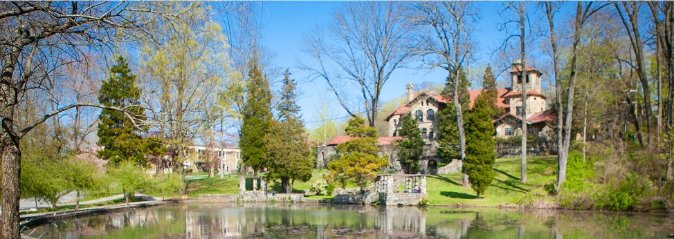For senior and head of Earthkeeper’s club Hannah Horton, being a Christian and a conservationist should go hand in hand. As Wendell Berry, the novelist, environmental activist, and farmer, writes in his short essay, Christianity and the Survival of Creation, “Creation is not in any sense independent of the Creator.” Too often, we mistakenly separate “things of the earth” from “things from above” and forget that there are holy things occupying the earth as well. We forget that, as the poet Gerard Manly Hopkins puts it, “Christ plays in ten thousands places” right here where we are. The earth is God’s creation and inherently reflects Christ. William Blake wrote that “everything that lives is holy.” So in a sense, the earth is a kind of sacrament. This earth is a gift to us. Hannah notes that it is dangerous theology to only think about heaven and life after earth. After all, we are here right now and the majority of the Bible centers on people living on earth. It commands us to care and to serve in the here and now. And we have been given this earth not just to use up, but to cherish it as a gift. So we should do things with care and with a sense of intentionality. Hannah puts in nicely that “this planet is a home given to us by God.”
She continues by pointing to biblical and theological tradition to support this idea that Christians are called to take care of the earth. This includes caring for one another, the plants, and the animals. The earth is a gift not just for us to cherish and do nothing for, but a gift to which we have a responsibility. This is why dominion over the animals is more a sense of responsibility to care for them than it is to gain control over the natural world. As Christians, we are to seek to find a balance between being good stewards of the earth and knowing our place in the natural order as well. For too many times have we overemphasized our place in the cosmos. Even just reminding ourselves of the fragility of our place in world is so much a part of how we go about caring for the earth. When we treat our time and our place here as fragile gifts, we better appreciate this earth and hopefully learn not to waste it.
Yet, Hannah assures that we cannot stop at simply recognizing our role to care for the environment, but we must actively integrate this mindset into our lives. She suggests, “We can start small, start by investigating, going through our day. We can think about what we eat, where we are using up electricity, how we get place to place. Tackle simple tasks. Integrate those into your life.” Then we can begin to research deeper and then an outreach can start, which we can work through together with a partner.
So if you are interested in conservation and the interplay between the Christian faith and caring for the environment, Earthkeeper’s club is a great place to start. Earthkeeper’s is about keeping the students of Eastern educated about environmental concerns and keeping us in this call to action, guiding us about how to live a green lifestyle. Club meetings and times will be announced later, but you can contact Earthkeepers@eastern.edu or email Hannah Horton directly.
Wendell Berry summarizes part of our purpose in caring for the environment, writing “the care of the earth is our most ancient and most worthy and, after all, our most pleasing responsibility. To cherish what remains of it, and to foster its renewal, is our only legitimate hope.”

